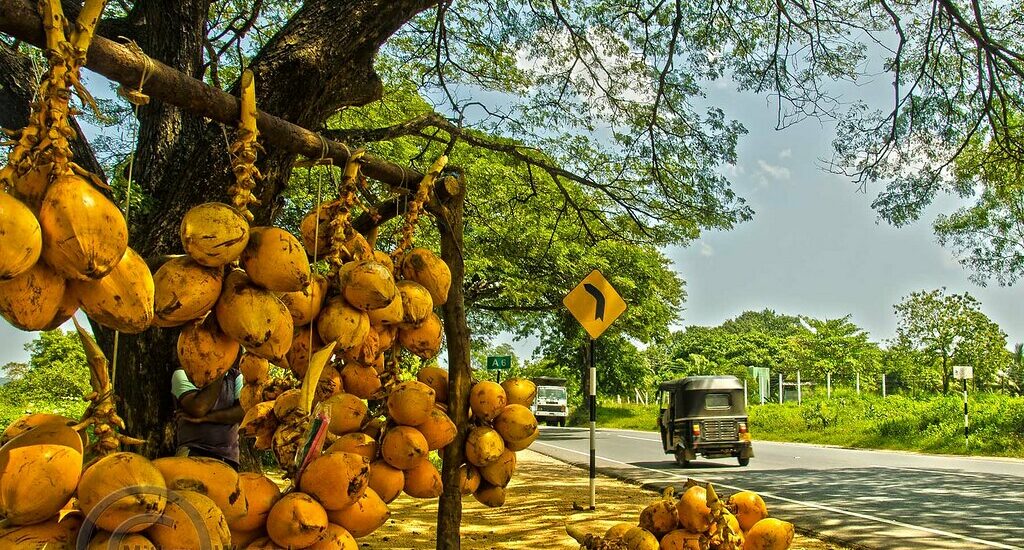- August 10, 2023
- Posted by: Web Admin
- Categories: Product Knowledge, Products

The King Coconut Advantage
- Distinct Characteristics
King coconuts are a sub-variety of coconuts famed for their delicious water and tender, jelly-like meat. They are easily distinguished by their brilliant orange-yellow husk. These distinguishing properties make them renowned among consumers looking for a refreshing and healthful snack.
- Ideal Growing Conditions
The cultivation of king coconuts develops in tropical and subtropical areas with fertile soil that drains well. They require plenty of sunlight, high humidity, and frequent rainfall, making Southeast Asia, the Caribbean, and parts of Africa ideal growing zones.
Sustainable Farming Practices
- Organic Cultivation
To limit chemical use and enhance environmental sustainability, most king coconut producers pursue natural growing. Organic fertilizers and insect control measures aid in the health of trees and the conservation of water.
- Crop Rotation and Diversity
Crop rotation and intercropping practices improve the fertility of the soil and reduce pest infestations. This approach reduces soil degradation while maintaining a healthy ecology.
- Water Management
Drip irrigation systems, for instance, can preserve water while providing appropriate hydration for king coconut plants. Gathering rainwater and reusing it for irrigation reduces water waste even further.
Economic Impact of King Coconut Farming
- Employment Opportunities
King coconut cultivation provides numerous job opportunities to both rural and urban residents. The industry provides opportunities for people of all skill levels, from cultivation and harvesting through processing and distribution.
- Export and Trade
The export of king coconuts and their associated goods helps a country’s economy greatly. King coconut water, known for its nutritious qualities, is in high demand around the world, fueling international trade and profitability.
- Tourism and Local Economy
The cultivation of king coconuts benefits tourism by giving visitors with an exclusive and refreshing experience. Local markets survive on the sale of fresh king coconuts, coconut-based foods, and souvenirs, which helps the economy overall.
Challenges and Future Prospects
- Climate Challenge Resilience
King coconut production confronts obstacles when climate patterns change, such as increasing pest pressure as well as changing rainfall patterns. Farmers are looking at resilient crop varieties and long-term irrigation systems to help them adjust to these shifts.
- Technological Integration
Adopting technology, such as precision agriculture and data-driven insights, can enhance the utilization of resources, improve yields, and reduce the impact on the environment.
- Market Diversification
Farmers can diversify their revenue sources and boost the crop’s economic viability by exploring value-added goods such as king coconut oil, cosmetics, and health supplements.

